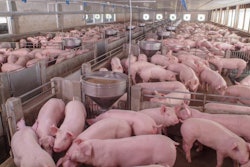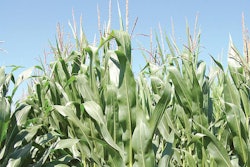
Further cases of African swine fever in small herds of domestic pigs have been confirmed in South Africa, and the virus is behind a dramatic reduction in pork production in the Dominican Republic.
Over the past month, new cases of African swine fever (ASF) at 10 locations have been officially confirmed by the South African animal health agency.
This is according to the latest notifications to the World Organisation for Animal Health (WOAH).
Starting between December 28, 2022, and February 13 were one or more outbreaks in five provinces. Affected were four locations in Gauteng, two in each of Eastern Cape and Free State, and one each in North West and Western Cape. None of the outbreaks was in the area designated by South Africa as the “ASF control zone.”
Individual herds affected varied widely in population. Four were described in the notification as “farms,” each with between 31 and 84 domestic swine. Also affected were one backyard herd, and five village herds. While one of the latter category comprised 1,581 animals, other affected herds had 10 to 365 pigs.
Based on WOAH reports, South Africa has four ongoing ASF series dating back to 2019. Since then, the authorities have officially registered a total of 221 outbreaks in domestic pigs. Directly involved have been around 88,400 animals.
The most recent province to confirm its first ASF cases is KwaZulu-Natal. Here, there were two outbreaks on small farms in July and September 2022.
Around 12 months ago, local media were reporting ongoing ASF outbreaks in Ghana, Nigeria and Uganda. Since then, these countries have not submitted to WOAH or other international agency any updates on the disease situation.
Update on ASF in the Caribbean
Almost exactly two years ago, the first cases of ASF in four decades were confirmed in the Dominican Republic. Within a few months, the infection had spread to the adjacent state on Hispaniola, the Republic of Haiti, where the virus had last been detected in 1984.
Since 2021, official reporting to WOAH from both nations has been sporadic.
Up to March 2022, 31 outbreaks had been confirmed in Haiti, involving a total of around 600 pigs. Affected were around 60 animals on one farm, and the rest belonged to backyard herds in eight of the nation’s 10 departments.
Meanwhile, the authorities in the Dominican Republic have notified WOAH of about 247 outbreaks. Occurring in 26 of the country’s 32 provinces up to January 2022, these had directly affected more than 19,500 domestic swine.
ASF has had severe negative impacts on the pig sector in the Dominican Republic. An indication of the scale of the losses is given in a recent report by the U.S. Department of Agriculture (USDA) Foreign Agricultural Service (FAS).
Last month, FAS reported that U.S. exports of pig meat to the Republic were 55% higher in 2022 than in the previous year. This is because, despite efforts to control the disease, it has not yet been eradicated in the Dominican Republic.
As a result of continuing losses of pigs, FAS forecasts that the Caribbean nation’s domestic production will be 30% lower in 2023 than in 2021. Its forecast is for output of 55,000 metric tons (mt; carcass weight equivalent), which compares with 81,000 mt in 2020, prior to the entry of ASF.
To boost ASF prevention and preparedness, key stakeholders in the pork industry have recently formed a new partnership in the U.S.
View our continuing coverage of the global African swine fever situation.
















